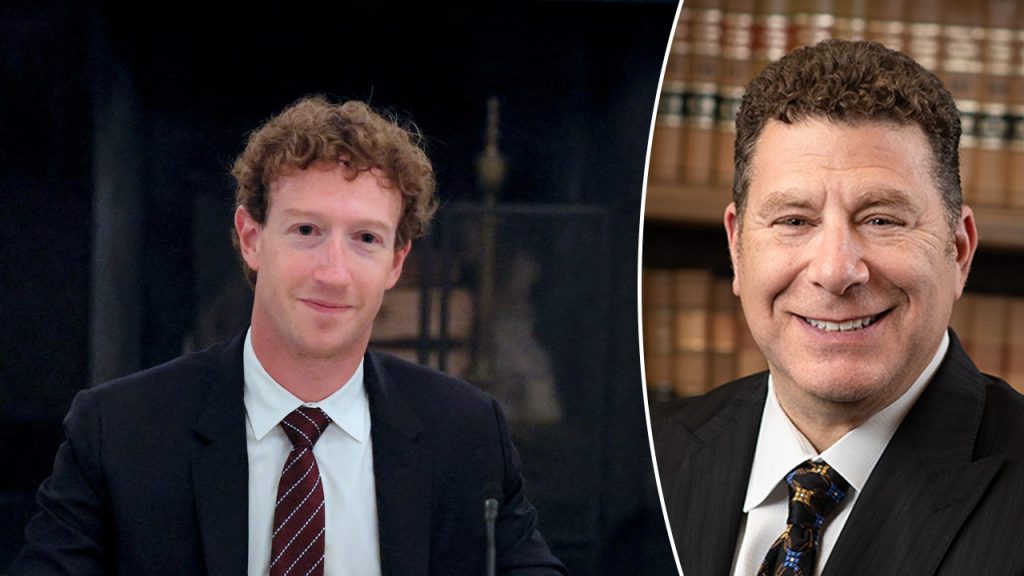The “Other” Mark Zuckerberg’s Fight Against Meta
In a peculiar case of digital identity confusion, Indianapolis bankruptcy attorney Mark S. Zuckerberg has found himself in a battle with social media giant Meta over his right to use his own name online. Having practiced law for nearly four decades, Zuckerberg is now suing Meta after experiencing what he describes as persistent and damaging account suspensions because he shares a name with the company’s famous CEO, Mark Elliot Zuckerberg. The lawsuit, filed September 2 in Marion Superior Court, accuses Meta of negligence and breach of contract after his accounts were suspended at least nine times over the past eight years.
“It almost feels like they’re doing it to me on purpose,” the attorney told Fox News Digital, expressing his frustration with what should be a simple case of identity verification. For Zuckerberg, these aren’t merely minor inconveniences but serious disruptions to his professional life. Each suspension severs communication with clients and wastes his advertising investments—he estimates losing at least $11,000 in advertising funds through these repeated shutdowns. The most recent suspension lasted more than four months despite his continuous appeals, highlighting the difficulty ordinary users face when trying to resolve issues with tech giants. His legal practice, which predates the Meta CEO’s rise to fame, has suffered real financial consequences from what appears to be an algorithmic assumption that anyone named “Mark Zuckerberg” must be impersonating the tech billionaire.
The attorney’s lawsuit documents five business account suspensions and four personal profile suspensions, creating a pattern that suggests systematic failure rather than isolated incidents. “I have sued Meta because they have turned off my business and personal accounts over nine times,” he explained. “I think they believe I’m impersonating their head honcho, Mark E. Zuckerberg.” What makes this situation particularly frustrating for the Indianapolis lawyer is that his identity and use of his name professionally predates that of the Meta CEO—yet he’s the one being treated as an impersonator. The irony isn’t lost on him: “It’s not fair that they will take my money, but then shut my account down,” he said, pointing out that after accepting his advertising dollars, Facebook repeatedly cuts off his access to the very platform he’s paying to use.
The reach of this name-based suspension policy apparently extends beyond just Zuckerberg’s own accounts. In a recent development that added fuel to his legal fire, Facebook suspended an account associated with his sister’s Tampa homeowners association, apparently flagging his name on that account as impersonation as well. This expansion of the problem demonstrates how algorithmic decision-making can create cascading consequences that affect not just individuals but their broader networks and communities. Through his lawsuit, Zuckerberg seeks several remedies: restoration and maintenance of his accounts, reimbursement for lost advertising revenue, and coverage of his attorney’s fees—reasonable requests for someone who simply wants to use his actual name on a platform that has become essential for many professional services.
Despite the serious legal action, the attorney maintains a sense of humor about the situation, suggesting alternative resolutions: “If Mark wants to fly here personally and say ‘I’m sorry’ or maybe let me spend a week on his boat, I’d probably take him up on that.” This touch of levity underscores a more serious point about power imbalances in the digital age, where individuals—even established professionals—must fight extended battles simply to maintain their digital presence against automated systems of trillion-dollar corporations. The case highlights how identity verification systems designed to prevent impersonation can sometimes target legitimate users, especially when they share names with public figures, creating a form of digital collateral damage.
In response to the lawsuit, Meta acted quickly to reinstate Zuckerberg’s account, acknowledging the error in a statement: “We have reinstated Mark Zuckerberg’s account, after finding it had been disabled in error. We appreciate Mr. Zuckerberg’s continued patience on this issue and are working to try and prevent this from happening in the future.” While this immediate response addresses the current situation, it doesn’t resolve the underlying issues that allowed nine separate suspensions to occur over eight years. For the Indianapolis attorney and countless others who may face similar algorithmic judgments, the case raises important questions about digital identity rights, the consequences of automated moderation, and the responsibilities of platforms that have become essential infrastructure for professional and personal communication in the modern world.








